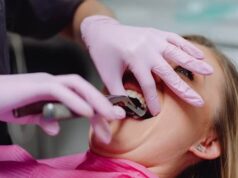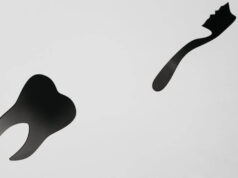Bad breath, halitosis, oral malodour or fetor oris is the third most common reason why people visit the dental clinic after tooth decay and gum diseases. Bad breath can affect one’s general health and has a negative impact on an individual’s self esteem. It is a common source of worry among people suffering from it.
What Is Bad Breath or Halitosis?
Bad breath or halitosis is an unpleasant odour that emanates from the oral cavity. Majority of the causes of bad breath come from within the mouth.
How to Know if You Have Bad Breath
Halitosis may be noticed upon waking up in the morning. This is called physiologic halitosis and is not considered a problem. Brushing the teeth in the morning will resolve the bad odour.
True halitosis is the type where the unpleasant odour from the mouth persists even after brushing the teeth.
Not all that have bad breath actually know it. For many, it is usually other people like spouses, colleagues, or close friends that informs them about their oral malodour. This could be the reason why a number of people, who suffer from bad breath, experience low self-esteem and tend to withdraw from public scenes. This occurs if they interpret gestures from others to mean avoidance.
Types of Bad Breath
Halitosis has been classified into genuine halitosis, pseudo halitosis and halitophobia.
Genuine Halitosis
In genuine halitosis, bad breath is present. Yaegaki et al defines genuine halitosis as obvious malodour with intensity beyond a socially acceptable level. Genuine halitosis can be physiological or pathological. Early morning halitosis is an example of physiologic type.
In pathological halitosis, oral malodour is present, the efforts the affected individual is making in cleaning the mouth not withstanding. the foul smell could be emanating from within the oral cavity or from extra oral sources. If the causes of the bad breath are coming from within the mouth, a dentist will be able to identify and treat them. In a situation where the bad breath is from extra oral causes, it is the duty of the dentist to refer the patient to the appropriate physician who will treat the underlying disease causing it.
Pseudohalitosis
Pseudo means false. Pseudohalitosis simply means that there is no existence of bad breath.
In pseudohalitosis, the individual complains of having bad breath but there is no actual existence of oral malodour. The signs and symptoms of halitosis are not present.
Halitophobia
This is a severe fear of halitosis that in actual sense does not exist. People with halitophobia believe that they have bad breath even after receiving treatment for bad breath. Such individuals usually have good oral hygiene. Their fear drives them to constantly brush. Many of them use hard brush and brush vigorously in their bid to eliminate the non-existent bad breath.
This category of people tend to abuse mouth washes and other oral care products.
Halitophobia has been classified as a body dysmorphic disorder. It is a serious health care problem that can lead to anxiety disorder.
What to Do if You Have Bad Breath
If you think you have bad breath or people close to you have complained to you about your bad breath, don’t panic or allow it to weigh you down. I have highlighted a number of things you can do to solve the problem.
Improve Your Oral Hygiene.
Sometimes, the cause of bad breath could be as simple as not brushing the teeth well. Tongue coating is a major source bacteria that produce foul smelling substances known as volatile sulfur compounds which causes bad breath. It habours a lot of bacteria at the posterior aspect of the tongue.
If we don’t clean the tongue well, the mouth is likely to have a bad odour as we go about our normal daily activities. Therefore, when you brush, take some time to properly clean your tongue by using a tongue cleaner.
Brush your teeth twice daily – in the morning after meal and after meal at night. Brushing after a meal helps to remove any food debris trapped in the mouth.
See Your Dentist
If you are concerned that you have bad breath, it is advisable you see your dentist. Your dentist will be able to determine the cause of the halitosis and give the needed treatment. Major causes of mouth breath come from within the mouth. If your dentist feels that there could be extra oral causes of the bad odour, he will refer you to your physician.
If it is a case of pseudohalitosis, counselling with prophylactic cleaning might help. Cases of pseudohalitosis and halitophobia that cannot be handled with counselling from the dentist should be referred to a psychological specialist.
See Your Physician
Some systemic conditions may be the reason why you are suffering from bad breath. Conditions like peptic ulcer disease, gastroesophageal reflux disease (GERD), uncontrolled diabetes melitus, and upper respiratory tract infection may impact terribly on your breath.
See a Psychologist
Some cases of pseudohalitosis and halitophobia may require the attention of a mental health expert like a psychologist or a psychiatrist.
Other Helpful Tips to Help Curb Bad Breath
Floss Regularly
Dental floss is a thin cord-like material for cleaning in-between the teeth (interdental regions). It removes food debris and dental plaque thereby reducing bacteria plaque in the oral cavity.
The use of dental floss after meals helps to prevent food packing interdentally thereby keeping the mouth clean and the breath fresh.
Clean Your Dentures Properly
If you are a denture wearer, you must clean your dentures properly to prevent bad breath. Poorly cleaned dentures accumulate debris and bacteria.
For removable dentures, always clean them over a half-filled bowl of water with a toilet soap and soft tooth bristle toothbrush. Rinse very well with water. Clean the denture and place it in cup containing water when not in use.
Avoid Smoking
Tobacco smoking is strongly implicated in the development of bad breath. It increases the production of volatile sulfur compounds within the gum. These compounds are foul smelling and impact the breath negatively.
Tobacco smoking leads to reduced salivation causing dry mouth. This encourages bacteria growth. It leads to the depletion of normal oral microflora while on the other hand, encourages the growth of pathogenic microorganisms.
One good step to adopt in improving your oral health will be to stop tobacco smoking.
Reduce Your Alcohol Intake
Chronic alcohol consumption is a risk factor to developing halitosis and other health conditions like liver disease and cancer.
A 2009 study published by National health Institute reveals that higher concentration of volatile sulfur compounds, which are responsible for bad breath, was found in individuals who consumed alcohol daily.
Use of Breath Fresheners
If you stay for long without opening your mouth, the tendency that your mouth would smell as you want to talk to someone is high.
If you are working for long hours in the office, or you are fasting for a number of days, breath fresheners can be helpful in keeping the mouth fresh.
Breath fresheners can be used after eating certain foods like fish, garlic, fresh onion, etc
Some of the breath fresheners you can use include sugar-free chewing gums, antiseptic mouthwashes. Chlorhexidine mouth rinse is effective in inhibiting the production of volatile sulfur compounds.
It is important to note chewing gums and mints that contain sugar are not recommended. This is because the bacteria in the mouth will act on the sugar and cause tooth decay.
Conclusion
Halitosis is a serious oral health problem. If you are suffering from oral malodour, please don’t hesitate to seek help. it is treatable. Schedule a visit to your dentist and begin a journey to restoring your confident smile.









